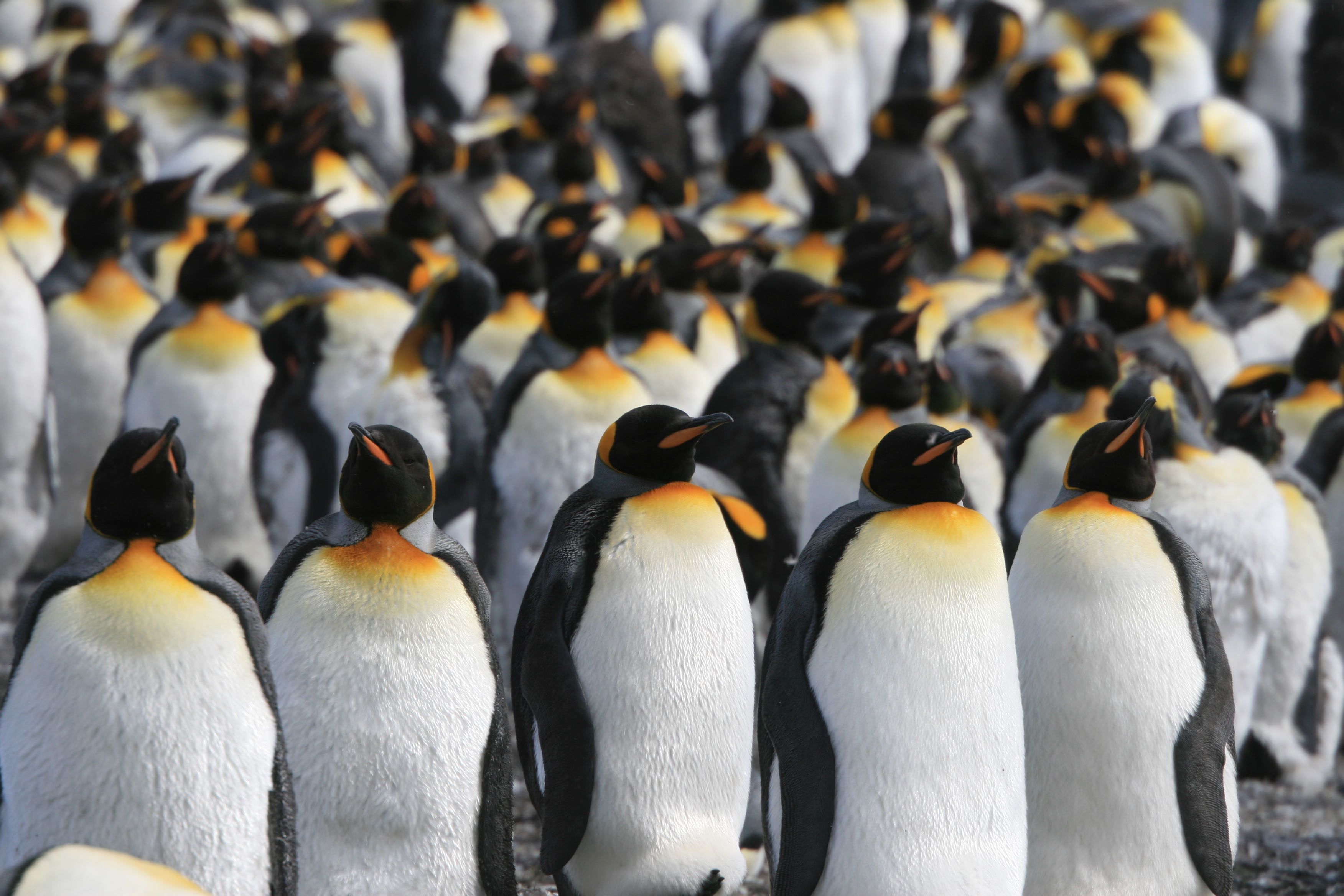After being tossed around on the Drake Passage for 4 days, it was such a relief to see land and moor up in Half Moon Bay, and enjoy peace and quiet. Imagine our dismay when a cruise ship drew up nearby the following morning! However, Darryl knew some of the folk on board, and they came over to visit. We went ashore in their fabulous large zodiac to ski, and as we came closer to the dark pebbly beach, I caught sight of a small group of penguins sitting looking at us with interest. I couldn’t help but exclaim ‘oh look/ Penguins!” with massive excitement. Their response was “first time in Antarctica”
I simply cannot imagine ever becoming blase about these enchanting birds. The ones we saw were Gentoo, the ones with a red beak, a band of white over the tops of their heads and pink feet. We also saw what we imagined was a dead seal higher up the beach. There was no movement or apparent breathing. Neil assured us it was asleep and that it was a Weddell seal. He was right. We passed it on skis later in the day and it opened one eye to look but didn’t stir at all the whole day. It was the perfect example of a state of total relaxation. Perhaps we can all learn from it.
We climbed the 100m peak on skis and had our first antarctic ski turns in rather slushy snow, having enjoyed the view from the rather cold windy summit, surrounded by pairs of sub antarctic skuas, a large brown predatory bird. We then skinned past the Argentinian scientific base of Camarra which was unoccupied and headed towards the opposite side of the beach to a rocky outcrop. This was a chinstrap penguin rookery, the noise of which reached us long before we arrived. These charming birds were waddling up from the sea with clean white bellies, and clutching pebbles in their beaks. They walked and hopped over the snow towards the rookery at the top of the hill. Others waddled and slid down the hill looking rather dirtier towards the sea. When groups of them waddled in a line, the charm effect was magnified, and we spent a long time observing them and photographing them moving to and fro before walking up to their nesting site. Antarctic protocol dictates that you must be further than 5 metres from wildlife and if your presence causes a change in their behaviour, you must retreat. We had to follow strict bio security rules, and make sure that we were not bringing any cross infection to the site. We scrubbed our shoes and ski boots before and after going ashore. Visitors are not allowed to touch or remove anything or damage the environment in any way, or take any food or drink near wildlife. It is such a privilege to be allowed to visit such sensitive sites and we were happy to oblige.
Once we walked up the hill, we saw and smelled the rookery. It had a fishy smell, and penguin dung is pink, white and yellow, and can be ejected quite a long way with a waggle of their tails. The birds lay on their stomachs on pebbly nests, attended by their mates, and all were very vocal. Mates presented each other with small pebbles and these were greeted with great enthusiasm and added to the nest. If another penguin came too close to the nest noisy exchanges took place as pebble theft was common. It was interesting to observe courtship displays. Both parties extend their bodies and tilt their heads towards the sky, and flap their wings and make an extraordinary sound for several minutes as they wave their necks to and fro. Wildlife films seem to focus on the emperor penguin and I for one, know so much more about them than Chinstraps. It seems that both sexes must incubate the eggs, which are fairly large, about the size of a goose egg and white. You could clearly see the featherless hollow between their well developed legs, which fits neatly over the egg.
The skuas circled overhead, ready to predate on the eggs and we also saw snowy sheath bills, a rather small egg thieving bird which walks about in the rookery.
A couple of days later on Deception island, a few of us chose to visit the largest chinstrap penguin rookery on foot, comprising of 200,000 pairs. The number has sadly halved in recent years due to over fishing of krill which is used to feed the fish in farms, and for omega 3 capsules. We had the most magical experience. This far surpassed the ski experience.


lovely account of a first encouter with penguins.
Shame about the slushy snow!
Sounds like you are having a fantastic, educational and enchanting time. Take care.
Boom shkalakaa boom boom, problem solved.
Hi Louise
What a wonderful experience. I love the blog and look forward to the next installment.